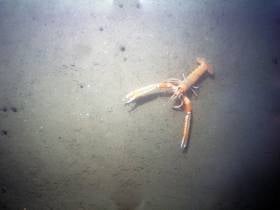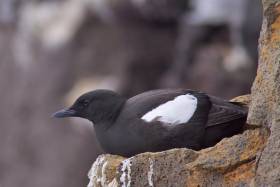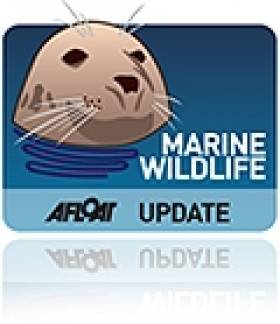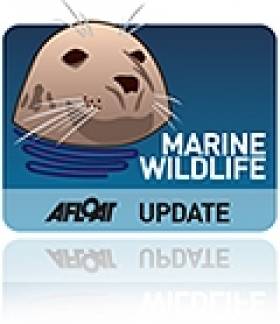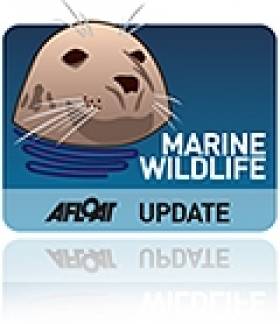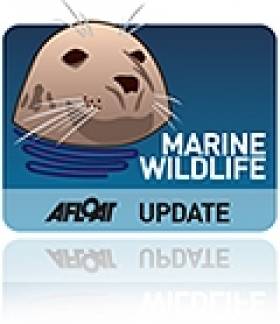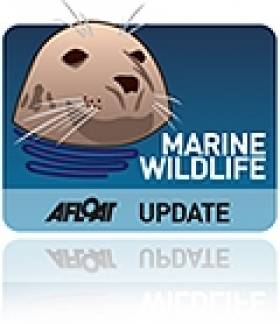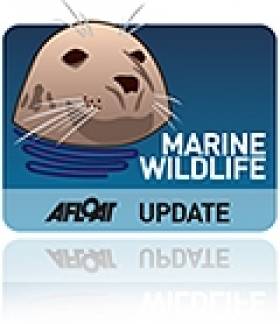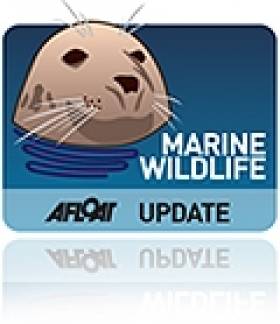Displaying items by tag: Marine Conservation Zones
Forty-one new marine conservation zones on England’s coast will create a ‘blue belt’ of protected waters for marine wildlife eight times the size of greater London, as the Guardian reports.
The string of new protected areas runs from Bournemouth to Goodwin Sands in Kent and covers 12,000 sq km of marine habitat, bringing to 355 the total number of marine protected areas around Great Britain.
New sites in the Irish Sea include South Rigg, between the Ards Peninsula and the Isle of Man, which is a habitat for Dublin Bay prawns and ocean quahogs; and Queenie Corner east of Dundalk Bay, which is home to sea cucumbers and brittle stars.
Despite criticism that activities such as dredging are still permitted in zones that fall outside of inshore waters, conservationists say that the initiative has been making a difference in a number of vulnerable areas.
The Guardian has more on the story HERE.
Black Guillemots & Ancient Clams Gain New Protections In Northern Ireland
#MarineWildlife - The RSPB has welcomed the announcement of new marine protected areas for Northern Ireland this week.
“The formal designation of four new marine protected areas will help protect a range of vulnerable species and habitats - ranging from black guillemots to ocean quahog and seagrass meadows,” the wildlife charity said in a statement.
Among the new Marine Conservation Zones (MCZs) announced by Storming is an area near Rathlin Island off Co Antrim that’s the first in the UK to be set aside for a seabird species, the amber-listed black guillemot.
The other new zones announced include seagrass meadows in Waterfoot, also in Co Antrim, and the fragile ecosystem for sea pens in Carlingford Lough.
Also included among the new MCZs is the territory of ocean quahogs in outer Belfast Lough.
According to The Irish News, these clams are thought to have been thriving in the waters near the city for over 200 years - and individual clams could live for hundreds more.
The Stormont announcement comes a year after the new zones were first proposed for public consultation, as previously reported on Afloat.ie.
#MarineWildlife - Four new Marine Conservation Zones (MCZs) for Northern Ireland have been put forward for consultation, as the Coleraine Times reports.
Rathlin, Waterfoot, Outer Belfast Lough and Carlingford Lough are the proposed locations, variously home to marine species from the black guillemot to the white sea slug, as well as vulnerable geomorphological features like sea arches.
"We all have a stake in preserving and protecting our marine environment for future generations so I urge people to let us know their views on these proposed sites and species," said NI Environment Minister Mark Durkan, who launched the consultation today (Monday 14 December).
Members of the public in Northern Ireland have until 11 March 2016 to express their views, with full details on the consultation available online.
The Coleraine Times has much more on the story HERE.
#MarineWildlife - New marine protections for Northern Ireland's waters could provide a further sanctuary for our smallest marine mammal, the harbour porpoise.
As the Belfast Telegraph reports, the proposed Marine Conservation Zone (MCZ) for the area between Belfast Lough and Carlingford Lough would join the Causeway Coast zone protected in 2012.
The news comes some months after the European Commission put pressure on Westminster to designate more protected areas for the smallest of Ireland's cetaceans, whose swimming grounds are being encroached by offshore wind farm development.
And the new proposals for Northern Irish waters also include protections for important seabird colonies as well as an area of seagrass that's vital to local biodiversity.
But the overall scale of the UK's MCZ plans, reduced from more than 100 proposed zones to a total of 50 over the past two years, has been criticised by conservation groups for betraying a 'lack of ambition'.
The Belfast Telegraph has more on the story HERE.
Marine Wildlife News: Seals Returned To Wild, Dolphin Says Adieu, Irish Sea Life Revealed
#MarineWildlife - Cute by name, cute by nature: Sherkin, Buoy and Splash were returned to the wild after being nursed back to health by the volunteers at Seal Rescue Ireland.
As the Irish Examiner reports, the three young seals – rescued after tips from the public from locations in Cork and Kerry – were rehabilitated over the past three months at the new marine wildlife refuge in Courtown.
But they were finally fit to return to the open water last weekend at Fountainstown beach in Co Cork. The Irish Examiner has much more HERE.
As three return to Irish waters, another says adieu – as Clet the lone dolphin has now been spotted off the Dorset coast, according to the Bournemouth Echo.
Last spotted between Ireland and Scotland's west coast in December, the solitary cetacean first noted in French waters in 2008 appears to have completed a full loop around the island of Ireland.
Along the way he bypassed Dingle's famous resident Fungie and spent a few days in the company of fellow 'dolphina-non-grata' Sandy, also known as Dusty.
Now he's attracting the attention of locals at Portland, south of Weymouth, across the English Channel from his original splashing grounds.
Closer to home, conservationists in the the North West of England have released a video documenting the wealth of wildlife living in the Irish Sea as a reminder to political movers and shakers of the importance of its protection.
Groups such as the North West Wildlife Trusts have criticised Westminster for 'lack of ambition' over the past year since plans for a network of well over 100 Marine Conservation Zones (MCZs) were scaled back to just 27 approvals in November 2013.
More recently a further 23 MCZs were designated proposed, only two of which are out of out of seven proposals covering the waters between Britain's west coast and Ireland (updated Tuesday 17 March).
Three New MCZs On Cards To Help Protect NI Marine Wildlife
#MarineWildlife - Northern Ireland may get three more Marine Conservation Zones (MCZs) under proposals being put forward by the NI Department of Environment.
As the Belfast Telegraph reports, Rathlin, Outer Belfast Lough and Carlingford Lough could join Strangford Lough as MCZs to provide added protection for vulnerable marine species such as quahog claims and black guillemots.
Other sites at Outer Ards, the Maidens, Foyle, Dundrum, Ardglass Gullies and Red Bay are also being considered as future conservation areas.
But wildlife groups have urged Stormont to provide proper budgets for any new marine protection schemes so that they are more than just "paper parks".
The Belfast Telegraph has more on the story HERE.
Saving the Seabed May Not Cost the Earth After All
#seabed – A British government decision to slash 75 per cent of a proposed network of marine conservation zones (MCZs) intended to save seabeds and estuaries in England from being damaged by commercial and recreational activities, has been criticised by professional fishery managers.
The Department for Environment, Food and Rural Affairs (Defra) is proposing to go ahead with only up to 31 of 127 zones recommended by its advisors. It says it would be too expensive to set up more.
Responding to the watered-down proposals, the Institute of Fisheries Management (IFM) said it was "extremely disappointed" no more zones would be designated in the near future. Instead it called for "a clear timetable" for more, especially close inshore and for early discussions on how to manage and enforce them.
One zone the institute wants brought forward is in the Thames estuary which it says is one of the best studied estuaries in the UK, containing a wealth of well documented features fully meeting the MCZ criteria.
The estuary had long been a showcase for sustainable development. Most of the development challenges cited for delaying it were already being dealt with in a fully sustainable manner.
Another is the Alde-Ore estuary near Felixstowe, Suffolk. This contains a recruiting population of smelt (Osmerus eperlanus) a recognised MCZ flagship species. New evidence suggests a spawning run by these into the freshwater reaches of the estuary.
The institute agreed with the fisheries minister Richard Benyon that enforcing remote offshore zones could be costly, particularly if fishermen from other countries fished there.
Inshore, however, the use of sound and accessible science in selecting zones would engender strong commitment to self-enforcement among local sea users. Policing costs, including intelligence gathering, could then be "very low indeed."
There were already very good examples of self-enforcement in shell fisheries. In estuaries on the Thames and in Devon trawling restrictions had been maintained in an inclusive and coherent manner, at low cost.
Because Defra had not said how the zones would be managed and enforced the marine industry had, in some cases, provided "its own worst case scenarios," of the costs.
"This is an understandable reaction," according to Steve Colclough, chairman of the institute's marine section, "but it tends to militate against further designation [of more zones] in the near future."
Because of the uncertainty over management, some anglers felt that if estuaries became conservation zones they would be excluded from fishing in them. This was a factor in a number of cases and reassurances about a balanced approach carried little weight.
The institute was also disappointed the proposals did not refer to the socio-economic benefits of conservation zones. Around the world there was evidence they brought significant long-term benefits to fisheries, tourism and recreation. There had been early benefits to fishermen in recent examples of marine protection in England such as in Lyme Bay and Port Erin Bay on the Isle of Man.
Mr. Colclough said the institute was concerned about the balance of evidence and inconsistencies in some zone decisions. The rationale that estuaries, mudflats and salt marshes were some of the most productive aquatic ecosystems, was built into the reasoning for selecting some zones but not others.
The importance of conservation species such as the smelt had only been used in some decisions. For example, the Medway estuary was put forward for designation now, but data presented on the presence of a self-supporting population of smelt was not in the proposal. The institute said it was frustrating to be unable to see clearly where and how high quality information which it had provided had been used in making decisions.
"Such action tends to reduce the commitment and engagement so vital for success of these projects... We were promised [the MCZ process] would be transparent and fair, based on good science... Unfortunately we and others have noted specific data errors" which damaged the credibility of the whole process.
"These may seem small issues, but not to users who already feel threatened by the whole process. Understandable fear of the unknown quickly becomes antagonism."
As a professional body promoting more sustainable fisheries management, the Institute of Fisheries Management has a wealth of relevant experience, Mr. Colclough added, and said he looked forward to positive future engagement with Defra and others.
NI Marine Bill Progress Marks 'Turning Point'
#MarineWildlife - The Northern Ireland Environment Minister says the new Marine Bill put before Stormont marks a "turning point" for the North.
As 4NI reports, this week saw the fourth stage of the Marine Bill in the NI Assembly as well as the launch of a consultation strategy for Marine Protection Areas (MPAs).
Should it be enacted in legislation, the Marine Bill - strongly supported by the RSPB among others - would give the Assembly powers to select and manage Marine Conservation Zones (MCZs) to safeguard the North's marine biodiversity.
Minister Alex Attwood commented: "Northern Ireland’s seas are home to some of the world's most spectacular wildlife and habitats, and have the potential to power our nation through wind and wave and create thousands of new jobs.
"We have reached a turning point and must modernise in order to meet increasing and competing demands on our seas."
The Marine Bill also provides for the creation of a National Maritime Plan which covers all aspects of the marine environment from wildlife to investment in tidal and offshore wind power.
4NI has much more on the story HERE.
#MarineWildlife - UK environmentalists have expressed their disappointment at the British government's slow progress on developing its promised network of Marine Conservation Zones (MCZs), as the Belfast Telegraph reports.
The consultation period was for the proposals was set to end on Sunday 31 March - amid fears among conservation groups that were realised some months ago with the news that just 31 out of a potential 127 sites would be designated as protected for marine wildlife and plantlife by the end of this year.
It's being reported that Environment Minister Richard Beynon is blaming budget cuts and the high cost of scientific assessment for the slowdown in progress on the government's side.
"I want to do as many zones as we can for as little as we can," he told the BBC. "People have waited many years for this; we will designate the first tranche in September and will announce the next lot for consultation then."
The Royal Yachting Association (RYA) said in December that it was "encouraged" by the British government's "sensible" phased approach to the MCZ plans.
However, conservationists like Jolyon Chesworth from the Wildlife Trusts argue that their interests are being asked "to compromise on a compromise".
Chesworth added that the original 127 zones "were only nominated after very long discussions with anglers, sailors and the fishing industry".
The Belfast Telegraph has more on the story HERE.
RYA 'Encouraged' By Britain's Moves On Marine Conservation Zones
#RYA - The Royal Yachting Association (RYA) has said it is "encouraged" by the British government's approach to designating Marine Conservations Zones (MCZs) around the coastlines of England and Wales - the details of which have disappointed environmental groups.
RYA planning and environment advisor Caroline Price commented: “The phased approach that government is proposing appears on the face of it to be very sensible.
“The RYA has been resolute in insisting that an MCZ should be no larger than required to protect the habitats and wildlife features which it is intended to protect and that the scientific basis for designating a particular feature for protection should be sound.
“We are pleased therefore to see that ministers have recognised that they need to have a strong evidence base when looking to designate sites, from both an ecological and socio-economic perspective.
“We are particularly encouraged that the approach to highly protected sites is being reviewed as the proposals for Reference Areas are of great concern to us.”
Of the 31 sites proposed in the consultation for designation by the end of 2013, the RYA has objections to only one of the sites - the Aln Estuary, which contains "a small charted anchorage in the one location in which a vessel can stay afloat at all states of the tide in the estuary".
The response from the RYA comes just days after environmental groups in the UK expressed their dismay over the government's decision to designate just a quarter of the recommended 127 sites.
As the Guardian reports, Westminster was accused of a "lack of ambition" by the Marine Conservation Society (MCS) over the announcement last Thursday 13 December, which it says ignores the government's own advisers who recommend a 'coherent network' that includes immediate designation for 59 sites regarded as 'highly threatened'.
The RYA says it is "broadly supportive of government plans to establish a coherent network of Marine Protected Areas and Marine Conservation Zones.
"However, it has fought throughout the process to date, and will continue to do so, to protect the public right of navigation and to ensure, as far as is possible, that recreational boating interests are not adversely affected by the designation of such MCZs."
It also emphasises that the "omission of the detail of management measures from this [public] consultation means that we still don’t really know what designation will actually mean" to affected local communities.



























